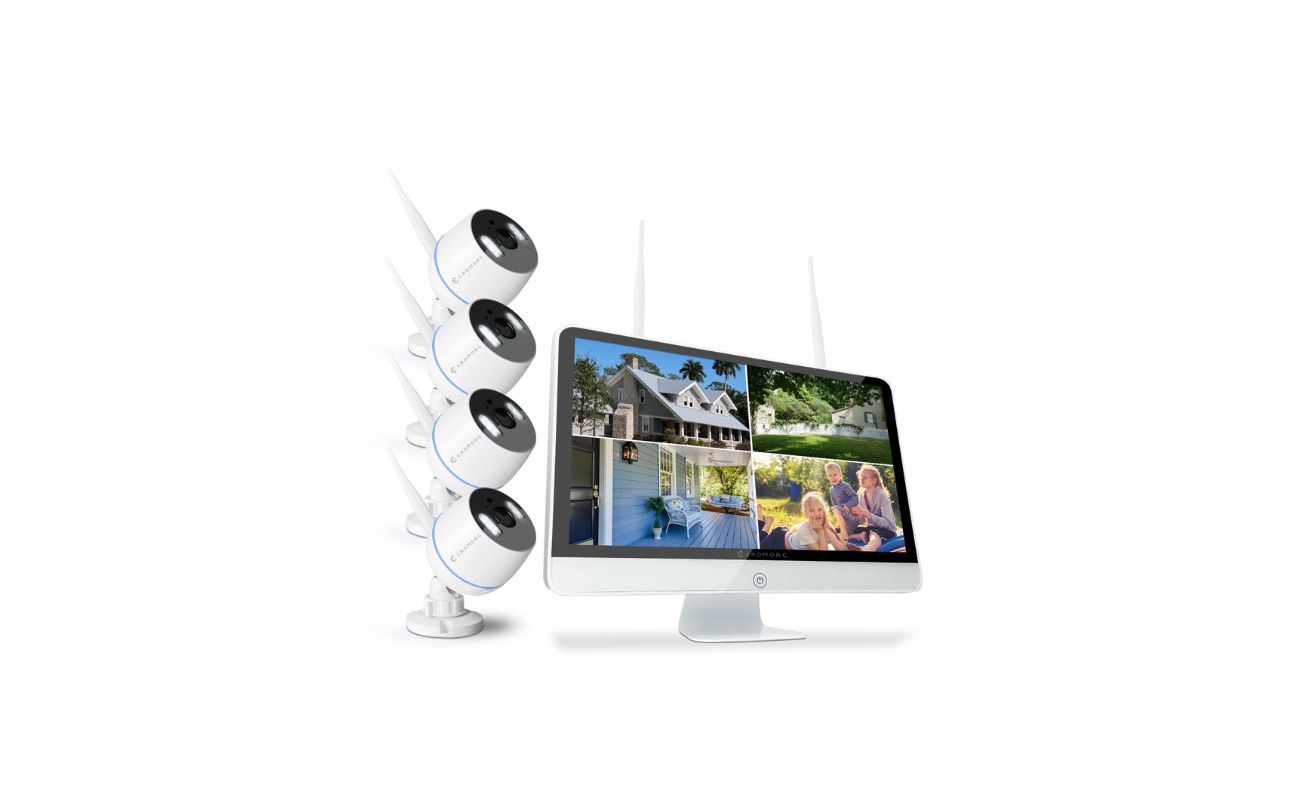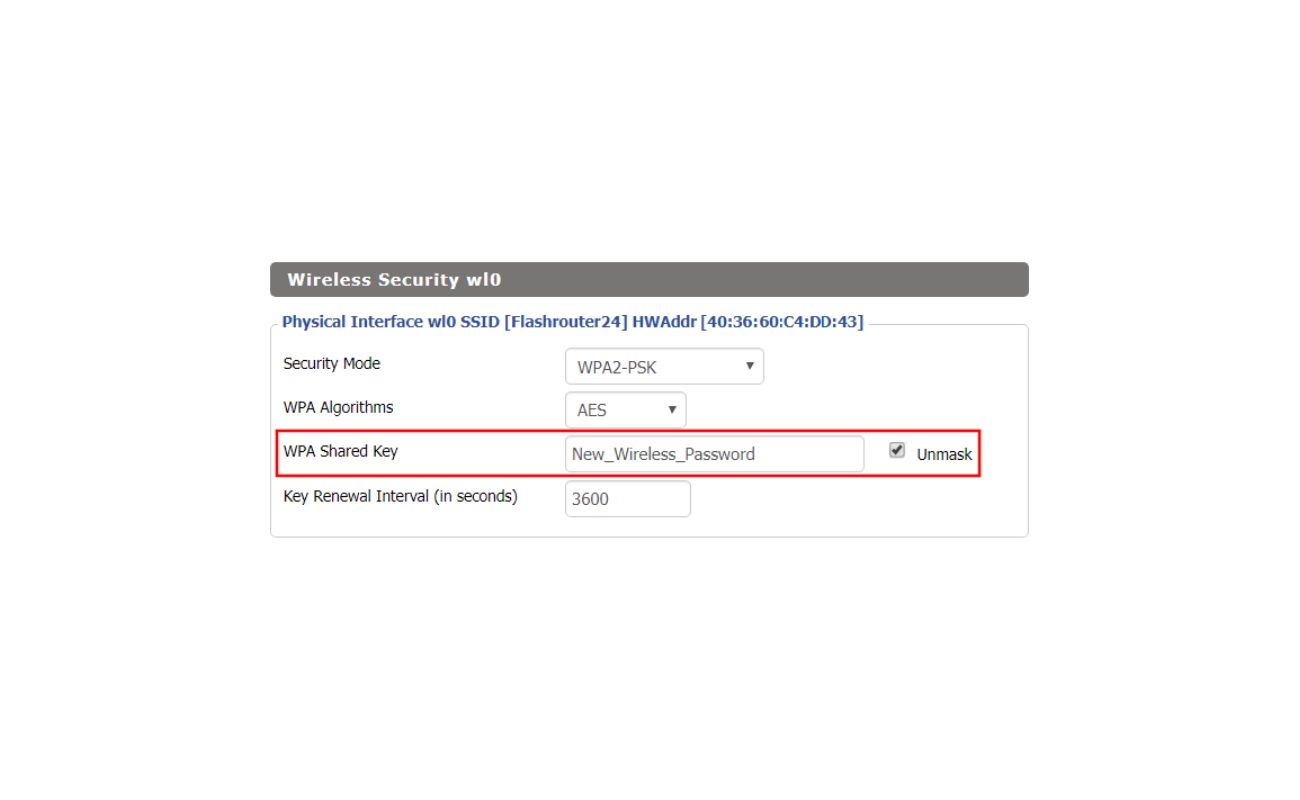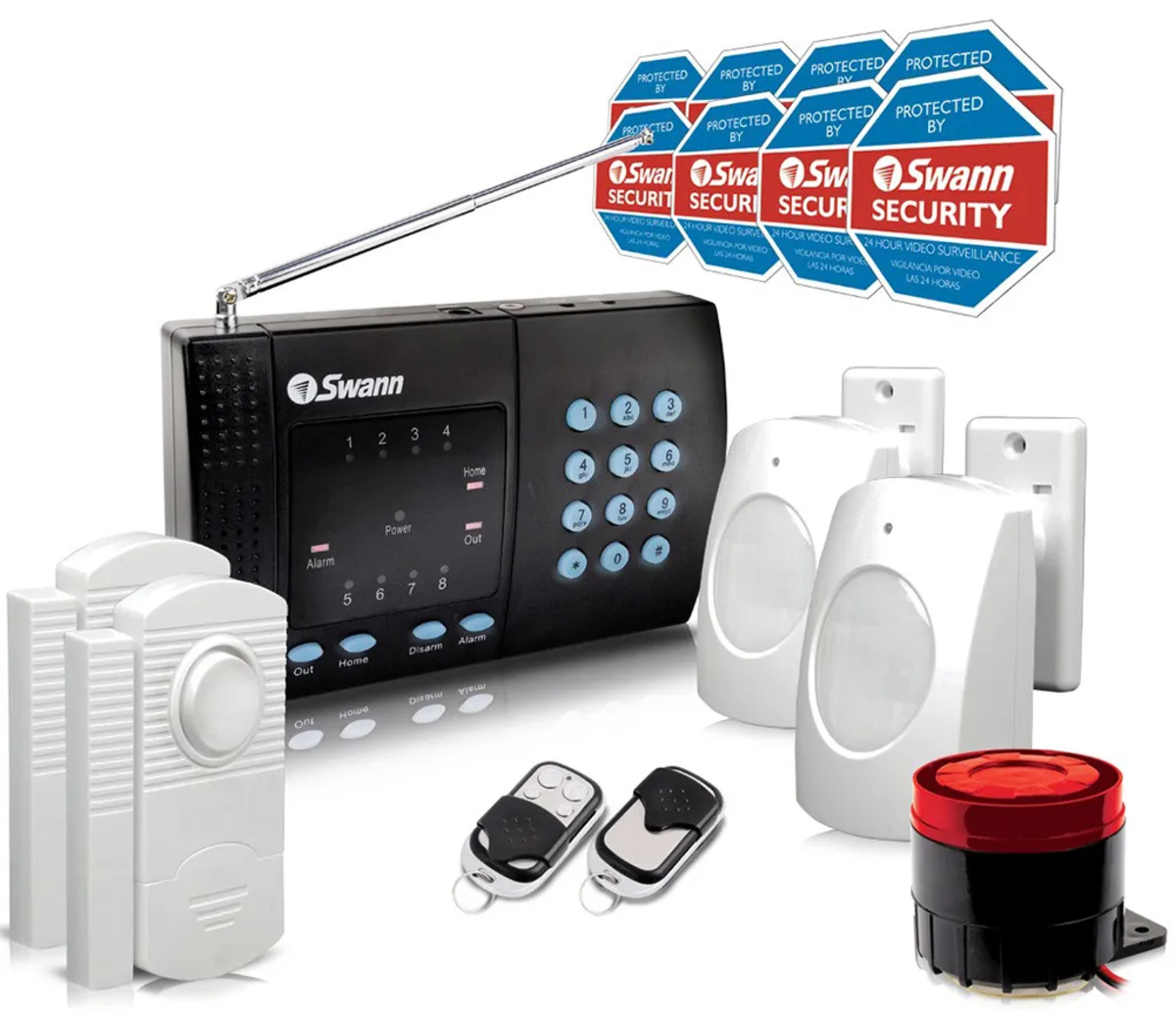Home>Home Maintenance>How Much Can I Deduct On My Taxes For Home Repair


Home Maintenance
How Much Can I Deduct On My Taxes For Home Repair
Modified: March 6, 2024
Find out how much you can deduct on your taxes for home repairs and maintenance. Maximize your tax savings with valuable deductions for home maintenance expenses.
(Many of the links in this article redirect to a specific reviewed product. Your purchase of these products through affiliate links helps to generate commission for Storables.com, at no extra cost. Learn more)
Introduction
When it comes to home maintenance and repairs, they can often take a toll on your finances. However, there may be a silver lining when it comes to tax time. Did you know that some home repair expenses can be deducted on your taxes? That’s right – by taking advantage of the tax deductions available, you can potentially save money and offset the costs of necessary repairs.
Understanding the tax deductions for home repairs is crucial in making the most of your financial situation. This article will guide you through the different types of home repairs that are eligible for tax deductions, deductible expenses, non-deductible expenses, record-keeping, and how to maximize your deductions.
Before we dive into the specifics, it’s important to note that tax laws and regulations change frequently, so it’s always a good idea to consult a tax professional or refer to the latest IRS guidelines for the most up-to-date information.
Now, let’s explore the world of tax deductions for home repairs and uncover the potential savings that await you!
Key Takeaways:
- Save money on taxes by deducting necessary home repairs like roof, plumbing, and structural fixes. Keep records and consult a professional for maximum benefits.
- Energy-efficient upgrades and home office repairs may also qualify for tax credits. Stay informed about local and state tax incentives to maximize savings.
Understanding Tax Deductions for Home Repairs
Tax deductions for home repairs provide homeowners with an opportunity to save money by reducing their taxable income. These deductions are available for expenses incurred in repairing, improving, or maintaining your primary residence or rental property. However, it’s important to note that not all home repair expenses are eligible for tax deductions.
Typically, tax deductions for home repairs fall into two categories: repairs that are necessary for the home’s upkeep and repairs that add value to the property.
Repairs that are necessary for the home’s upkeep are considered ordinary and recurring expenses. This includes repairs to the roof, plumbing, electrical systems, heating and cooling systems, and other essential components of the home. These repairs are deductible because they are necessary to maintain the home’s value and livability.
On the other hand, repairs that add value to the property are improvements that enhance the home’s worth. This includes adding a new addition, renovating the kitchen or bathroom, installing new flooring, or upgrading the landscaping. These types of repairs may be eligible for deductions, but they are subject to specific criteria.
To qualify for tax deductions, home improvements must meet the criteria of “capital improvements.” This means that the improvements must have a useful life of more than one year, add value to the property, or adapt it to new uses. In addition, the cost of these improvements may be deducted over time through depreciation deductions.
It’s important to keep in mind that cosmetic repairs or routine maintenance tasks, such as painting walls, fixing minor leaks, or replacing broken tiles, are generally not eligible for tax deductions. These repairs are considered part of the regular upkeep and maintenance of the property.
Understanding the distinction between necessary repairs and improvements that add value is essential in determining which expenses can be deducted on your taxes. By keeping proper records and documentation of your home repair expenses, you can ensure that you take advantage of any eligible deductions and potentially save money during tax season.
Types of Home Repairs Eligible for Tax Deductions
When it comes to tax deductions for home repairs, there are specific types of repairs that may qualify. Understanding these eligible repairs can help you identify which expenses you can deduct on your taxes. Here are some common types of home repairs that may be eligible for tax deductions:
- Roof Repairs: Expenses incurred in repairing or replacing your roof may be deductible if the repairs are necessary to maintain the integrity of the home and prevent further damage. However, cosmetic upgrades or improvements that solely enhance the aesthetic value of the roof are generally not eligible for deductions.
- Plumbing and Electrical Repairs: Repairs made to the plumbing or electrical systems in your home may qualify for deductions if they are necessary to ensure the safety and functionality of the property. This includes fixing leaky pipes, replacing electrical wiring, or repairing a malfunctioning water heater.
- Heating and Cooling System Repairs: Expenses related to repairing or replacing your HVAC system or furnace may be deductible. However, it’s important to distinguish between routine maintenance and repairs needed to restore the system’s functionality. Regular maintenance, such as replacing air filters or cleaning ducts, typically does not qualify for deductions.
- Structural Repairs: Repairs made to the foundation, walls, or structural components of your home may be eligible for deductions. This includes fixing cracks in the foundation, repairing damaged walls due to water leaks, or addressing structural issues caused by natural disasters or age-related deterioration.
- Energy-Efficient Upgrades: Certain energy-efficient upgrades, such as installing solar panels, energy-efficient windows, or a geothermal heating system, may qualify for tax credits rather than deductions. These credits can help offset the costs of the upgrades and reduce your tax liability.
- Accessibility Modifications: If you make modifications to your home to accommodate individuals with disabilities, such as installing wheelchair ramps or widening doorways, these expenses may be deductible as medical expenses. Keep in mind that there are specific criteria and limitations for deducting medical expenses, so consult a tax professional for guidance on this particular deduction.
Remember, the eligibility of these repairs for tax deductions can vary based on factors such as the nature of the repair, the intent behind the repair, and the applicable tax laws and regulations. Consulting with a tax professional or referring to the latest IRS guidelines is essential to ensure that your home repair expenses qualify for deductions.
Deductible Expenses for Home Repairs
When it comes to deducting home repair expenses on your taxes, it’s important to understand which expenses are eligible for deductions. Here are some common deductible expenses for home repairs:
- Materials and Supplies: The cost of materials and supplies directly associated with the repairs or improvements may be deductible. This includes items such as lumber, paint, nails, plumbing fixtures, and electrical components. Keep receipts and invoices as proof of your expenses.
- Labor Costs: If you hire professionals to perform the home repairs, the labor costs may be deductible. This includes fees paid to contractors, plumbers, electricians, or any other skilled workers involved in the repair process. Keep detailed records of the payments made to these individuals or companies.
- Permits and Inspections: Fees paid for obtaining permits and inspections related to the home repairs may be deductible. This includes fees paid to your local building department for construction permits or fees for inspections required by local authorities. Keep copies of the permits and receipts as evidence of your expenses.
- Home Office Repairs: If you have a home office and you make repairs or improvements to that specific area of your home, you may be able to deduct a portion of the expenses. This includes repairs to the walls, flooring, lighting, or any other repairs necessary for the home office space. However, keep in mind that the deduction for home office expenses has specific rules and limitations, so consult with a tax professional for guidance.
- Insurance Premiums: If your home insurance premiums include coverage for repairs or improvements, you may be able to deduct a portion of the premiums. This typically applies to policies that include coverage for structural repairs or if the repairs were a result of a covered event, such as a fire or storm damage.
Remember, to qualify for deductions, these expenses must be related to repairs or improvements that are considered necessary for the home’s upkeep or that add value to the property. It’s essential to keep proper documentation, including receipts, invoices, and any other relevant paperwork, to substantiate your deductions and ensure compliance with tax regulations.
Before claiming any deductions, consult with a tax professional or refer to the latest IRS guidelines to understand the specific rules, limitations, and documentation requirements for deducting home repair expenses. They will be able to provide you with accurate and personalized advice based on your unique financial situation.
You can deduct home repair expenses that are considered necessary for the maintenance and upkeep of your home. However, you cannot deduct expenses for home improvements. Always keep detailed records of your expenses and consult with a tax professional for specific guidance.
Non-Deductible Home Repair Expenses
While there are several home repair expenses that may be eligible for tax deductions, it’s essential to be aware of the expenses that are not deductible. Understanding these non-deductible expenses can help you avoid any potential issues or discrepancies when filing your taxes. Here are some common non-deductible home repair expenses:
- Cosmetic Repairs: Expenses incurred for purely cosmetic purposes, such as painting walls, adding decorative elements, or upgrading fixtures solely for aesthetic reasons, are generally not eligible for tax deductions. These repairs are considered non-essential and fall under the category of routine maintenance.
- Routine Maintenance: Expenses related to routine maintenance tasks that are necessary to keep your home in good condition but do not involve substantial repairs or improvements are typically not deductible. This includes regular cleaning, lawn maintenance, or small repairs that do not significantly impact the home’s value or functionality.
- Homeowner’s Association Fees: Fees paid to a homeowner’s association (HOA) for general maintenance and upkeep of the neighborhood or common areas are not typically tax-deductible. These fees are considered personal expenses and are not directly associated with specific repairs or improvements to your home.
- Home Upgrades for Personal Use: If you make home improvements solely for personal enjoyment or comfort, without any intention of increasing the property’s value, these expenses are not eligible for deductions. For example, installing a swimming pool, building a home theater, or adding a spa to your property would generally not qualify for tax deductions.
It’s important to note that the distinction between deductible and non-deductible expenses can sometimes be subjective and depend on the specific circumstances. It’s always a good idea to consult with a tax professional to determine the deductibility of any expenses related to your home repairs.
Remember to keep accurate records of all your home repair expenses, whether deductible or non-deductible. This includes invoices, receipts, contracts, and any other relevant documentation. Maintaining organized records will not only help you during the tax filing process but also serve as evidence if you need to substantiate your deductions in the event of an audit.
By understanding which home repair expenses are not deductible, you can better plan your finances and avoid any potential tax-related complications when claiming deductions for eligible expenses.
Keeping Records and Documentation
When it comes to tax deductions for home repairs, proper record-keeping and documentation are essential. Keeping detailed records not only ensures that you stay organized but also helps substantiate your deductions and provide evidence in the event of an audit. Here are some tips for effectively keeping records and documentation:
- Save Receipts and Invoices: Keep copies of all receipts and invoices related to your home repair expenses. This includes receipts for materials, supplies, labor fees, permits, inspections, and any other relevant documentation. Organize them by category or date to make it easier to find and reference them later.
- Record Dates and Descriptions: Take note of the dates when the repairs were made and include descriptions of the work performed. This will help provide a clear timeline and explanation of the repairs, making it easier to justify the deductions if needed.
- Keep Contracts and Agreements: If you hired professionals or contractors for the repairs, keep copies of the contracts or agreements you have with them. These documents should outline the scope of work, cost estimates, and any warranties provided. They serve as further evidence of the expenses you incurred.
- Document Before and After: Take photos or videos of the areas that were repaired or improved before and after the work was done. These visual records can be valuable in demonstrating the condition of the property and the impact of the repairs on its value and functionality.
- Maintain a Home Improvement Journal: Consider keeping a journal or log where you record all the home repairs, improvements, and associated expenses. Include details such as the purpose of each repair, the amounts spent, and any other relevant information. This can serve as a comprehensive record of your home maintenance history.
- Consult with a Tax Professional: Tax laws and regulations surrounding home repair deductions can be complex and subject to change. It is always a good idea to consult with a tax professional who can provide personalized advice tailored to your specific financial situation. They can guide you on how to keep records and what documentation is necessary according to the latest IRS guidelines.
Remember, accurate record-keeping is crucial to ensure that you claim the correct deductions and comply with tax regulations. By documenting your home repair expenses diligently, you can maximize your deductions and minimize any potential issues during tax season.
It’s also important to keep your records and documentation stored in a safe and secure place. Consider keeping both physical copies and digital backups to ensure your information is easily accessible and protected. By taking these steps, you can have peace of mind knowing that you have the necessary documentation to support your deductions if required.
Maximizing Your Home Repair Tax Deductions
Now that you understand the types of repairs eligible for tax deductions, deductible expenses, non-deductible expenses, and the importance of proper record-keeping, let’s explore some strategies to maximize your home repair tax deductions:
- Plan and Bundle Repairs: If you have multiple repairs or improvements planned for your home, consider bundling them together. By combining repairs, you may be able to meet the criteria for deductibility more easily and maximize your deductions. This approach can also help you save on labor costs by hiring professionals for multiple tasks at once.
- Take Advantage of Energy-Efficient Tax Credits: Beyond deductions, there may be tax credits available for certain energy-efficient upgrades you make to your home. These credits can directly reduce your tax liability, so be sure to explore the options and requirements for energy-efficient upgrades such as solar panels, energy-efficient windows, or insulation.
- Consider Home Office Deductions: If you have a dedicated space in your home used solely for business purposes, you may be able to deduct a portion of the home repair expenses related to that specific area. Be sure to familiarize yourself with the specific rules and limitations surrounding home office deductions to ensure compliance.
- Research Local and State Tax Incentives: In addition to federal deductions, some local or state governments offer tax incentives or credits for home repairs or improvements that meet certain criteria. Research any potential programs or incentives in your area that could further reduce your tax liability and maximize your savings.
- Consult with a Tax Professional: While you can gather information and educate yourself on home repair tax deductions, it’s always wise to consult with a tax professional. They can review your specific situation, provide personalized advice, and ensure you are taking full advantage of all available deductions while complying with the latest tax regulations.
- Keep Up with Tax Law Changes: Tax laws and regulations are subject to change, so it’s essential to stay informed about any updates or revisions that may impact your home repair deductions. Regularly check for updates from the IRS or consult with a tax professional to ensure you are aware of any changes that may affect your tax planning.
Remember, maximizing your home repair tax deductions requires careful planning, documentation, and staying up-to-date with relevant tax laws and regulations. By taking proactive steps and seeking professional advice, you can ensure that you are taking full advantage of the savings available to you through these deductions.
Conclusion
Understanding the tax deductions for home repairs can be incredibly beneficial for homeowners. By leveraging these deductions, you have the opportunity to save money and offset the costs of necessary repairs and improvements to your home.
Throughout this article, we explored the different aspects of tax deductions for home repairs, from understanding the types of repairs eligible for deductions to deductible and non-deductible expenses. We emphasized the importance of keeping proper records and documentation to substantiate your deductions and provided tips on how to maximize your deductions.
While navigating the complexities of tax laws and regulations may seem daunting, consulting with a tax professional can provide invaluable guidance tailored to your personal financial situation. They can help you make sense of the eligibility criteria, the latest IRS guidelines, and any local or state tax incentives that may further enhance your deductions.
Ultimately, by planning your repairs, keeping track of your expenses, and staying informed about changes in tax laws, you can maximize your home repair tax deductions and potentially save a significant amount of money.
Remember, the information provided in this article is for general guidance purposes only, and it’s crucial to consult with a qualified tax professional or refer to the latest IRS guidelines for specific advice pertaining to your unique circumstances.
So, as you take care of your home and tackle necessary repairs, keep in mind the potential tax benefits that may be available to you. With careful planning, proper documentation, and professional advice, you can navigate the world of home repair tax deductions with confidence and make the most of your financial situation.
Frequently Asked Questions about How Much Can I Deduct On My Taxes For Home Repair
Was this page helpful?
At Storables.com, we guarantee accurate and reliable information. Our content, validated by Expert Board Contributors, is crafted following stringent Editorial Policies. We're committed to providing you with well-researched, expert-backed insights for all your informational needs.














